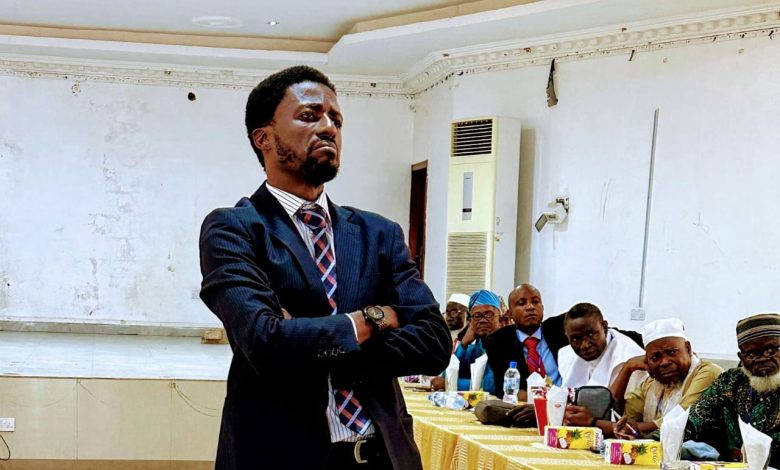
By Yemi Olajutemu
A Communication expert, and University Don, Prof. Adebola Aderibigbe, has called for urgent reforms in Nigeria’s policing system in order to address the worsening security challenges in the country.
Speaking on Thursday 12th of December 2024, at the Osun State Community and Safety Security Summit held in Ede, the don stressed the importance of proactive, community-oriented policing in ensuring safer communities.

The event, themed, “Securing Our Community Through Proactive and People-Oriented Policing,” was organised by the Osun State Ministry of Local Government and Chieftaincy Affairs in collaboration with OKSOM 92 Security Consult Limited, brought together traditional rulers, security experts, and policymakers from across the state, deliberating on the current security challenges in Nigeria and how to tackle them.
Delivering the keynote lecture, the Professor Aderibigbe of the Faculty of Communication and Media Studies, Federal University of Oye-Ekiti, highlighted Nigeria’s abysmally low police-to-citizen ratio, noting that the current figure of 370,000 police officers catering to over 230 million people was grossly inadequate, and falling short of the United Nations standard of one officer per 450 citizens.

He lamented the systemic problems plaguing the Nigeria Police Force (NPF), including poor funding, insufficient training, and inadequate welfare for officers. According to him, these issues, coupled with corruption and political interference, have rendered the police force ineffective in tackling crime.
Aderibigbe warned that the nation’s inability to address these challenges has led to rising insecurity across the country, pointing out that the surge in armed robbery, kidnappings, and cyber fraud was a direct result of the gaps in the country’s policing framework.
Citing the 2018 Offa bank robbery that claimed 32 lives, he highlighted the need for more effective crime prevention strategies.
While he commended the efforts of local hunters and vigilante groups, he stressed that reliance on informal security mechanisms was not sustainable in the long run.
The professor called on citizens to take an active role in securing their communities, sqying that “Security is a collective responsibility, Citizens must be vigilant, report suspicious activities, and work closely with law enforcement agencies to ensure safety.”
The State Police Public Relations Officer, CSP Yemisi Opalola, who also spoke at the event, urged residents to prioritise the safety of their communities. She emphasised the need for community members to collaborate with security agencies by promptly reporting criminal activities.
Also. the Commandant of Osun Amotekun, Dr. Isaac Omoyele, who described the summit as a laudable initiative, urged representatives from various communities to intensify public awareness campaigns on the importance of vigilance and security consciousness.
In his remarks, Dr. Olumuyiwa Fakeye of OKSOM 92 Security Consult Limited explained that the event was aimed at bridging the gap between law enforcement and communities to reduce crime rates in the country.
Aderibigbe further proposed that Nigeria must embrace modern technology to strengthen its policing efforts, recommending the deployment of surveillance systems, predictive analytics, and better communication tools to improve the efficiency of the police force.
He also advocated the formalisation of local vigilante groups through structured training and integration into the national security framework, while emphasising the role of traditional rulers and religious leaders in fostering trust and promoting collaborative efforts between communities and security agencies.
Calling for reforms, Aderibigbe urged the government to combat corruption within the police force and improve the welfare of officers to boost morale and effectiveness. He also stressed the need to increase the recruitment of police officers to ensure adequate coverage, especially in high-risk areas.
Participants expressed optimism that the summit would lead to actionable steps towards addressing the nation’s security challenges.




